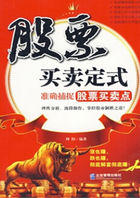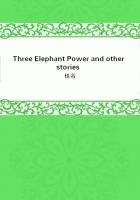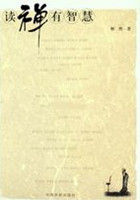He was the favorite of every society he entered, by his good-nature, his urbanity, his extensive knowledge, his keen sense of the ludicrous, his pleasant humor, his good-natured wit, and his profound wisdom.As a parliamentary orator, he was thoughtful, always thoughtful; and thoughtful bearers were pleased to notice that he was evidently thinking as he spoke.His speeches had also the charm of elegant diction and brilliant illustration.But for popular effect they were too candid, and wanted coarseness, invective, satire, and passion.His whig friends never made him a member of the cabinet, and Sir James Scarlet commented: "There is a certain degree of merit which is more convenient for reward than the highest." The students of Glasgow University paid him an appropriate honor when they elected him lord rector.
At length be set {354} himself vigorously to write a history of England.The work is calm, candid, full of fine generalizations and analyses of character; but wants liveliness of narrative, and a searching detection of motives, especially bad motives, -- he was too charitable, or, rather, too genial, to believe in human wickedness.His greatest work might have been a " History of the Revolution in England," as he had such a sympathy with the wisdom and moderation of the event , but he left the book unfinished.
He was persuaded with some difficulty to write a "Dissertation of the Progress of Ethical Philosophy," for a new edition of the " Encyclopedia Britannica." He took an active part in promoting Catholic emancipation and the Reform Bill.He was now evidently hastening to fulfil the grand work which he had allotted to himself.But he was seized with illness ere he completed it.He had not identified himself much with the religion of Jesus in his life, but he turned to it at his dying hours.His son reports: " He would speak of God with more reverence and awe than I have almost ever met with." "Our Lord Jesus was very frequently the subject of his thoughts; he seemed often perplexed and unable to comprehend much of his history.He once said to me: 'It is a great mystery to me, -- I cannot understand it.' " " His difficulty lay in the account given of the manner in which he became the Saviour of men." " Isaid to him at one time: 'Jesus Christ loves you;' he answered slowly and pausing between each word: `Jesus Christ -- love -- the same thing.' After a long silence, he said:
`I believe-' We said, in a voice of inquiry: 'In God?' He answered: ' In Jesus.' He spoke but once more after this."We have very imperfect means of knowing what his philosophy would have been had he fully formed it.We can judge of it only by the skeleton of his lectures at Haileybury, preserved in the Memoir, and by his historical and critical dissertation in the Encyclopaedia.He has a clear idea of the end to be served by ethical science " Not what <is>, but what <ought to be>.Here a new world opens on the mind: the word, the idea, <ought> has no resemblance to any object of natural science; no more than colors to sound, not so much.Both are phenomena.The question by what rules the voluntary actions of men ought to be governed.This important word ought, which represents no fact, is yet intelligible to all mankind; a correspondent term in {355}
every language, -- the terms `right,' `wrong,' `moral,'
`immoral,' `duty,' `crime,' `virtue,' `vice,' `merit,'
`demerit,' distinguished and contrasted." He has evidently kept three ends before him in his " Dissertation: " The progress of the science, especially during the two previous centuries a critical examination of the more eminent ethical writers and an exposition of his own views.These three ends are not kept separate, but run through the whole work.We may first take a cursory view of the historical exposition, and then critically examine his own theory.
He has a retrospect of ancient ethics.His sketches are not equal to those of Adam Smith in his "Theory of Moral Sentiments," but are worthy of being placed near them.They are not very erudite or very profound, but they are by no means superficial.He can sketch admirably the practical tendency of a philosophic system such as that of the Stoics.
He has then a retrospect of scholastic ethics.It could scarcely be expected of a whig that he should have much reverence for mediaeval times; but, in his treatment of the schoolmen, he is appreciative in the highest degree of their excellencies.It is evident that he has not that thorough acquaintance with their discussions and individual opinions which later research on the part of historians of philosophy and of the church might have enabled him to attain.He enters on a more congenial theme when he comes to modern times.
He begins with Grotius and Hobbes, of both of whom he has a high admiration, but remarks of Hobbes' system, that "a theory of man which comprehends in its explanations neither the social affections nor the moral sentiments must be owned to be sufficiently defective." He then enters on the controversies concerning the moral faculties and social affections, and gives a critical exposition of Cumberland, Cudworth, Clarke, Shaftesbury, Bossuet, Fenelon, Leibnitz, Malebranche, Edwards, and Buffier.He has formed a higher estimate of the merits of Edwards than most Europeans, whether British or German.He had studied the " Treatise on the Will " when a student in Aberdeen, and he favors the view taken by Edwards that virtue consists in love to being as being, according as being has claims on it.But whence the claims of being? An answer to this question must bring us, whether we wish or no, to an ethical {356} principle guiding the direction and flow of the affection.The discussion by Edwards is certainly a very profound one, and he brings out deep truths of which Mackintosh did not discover the importance.















